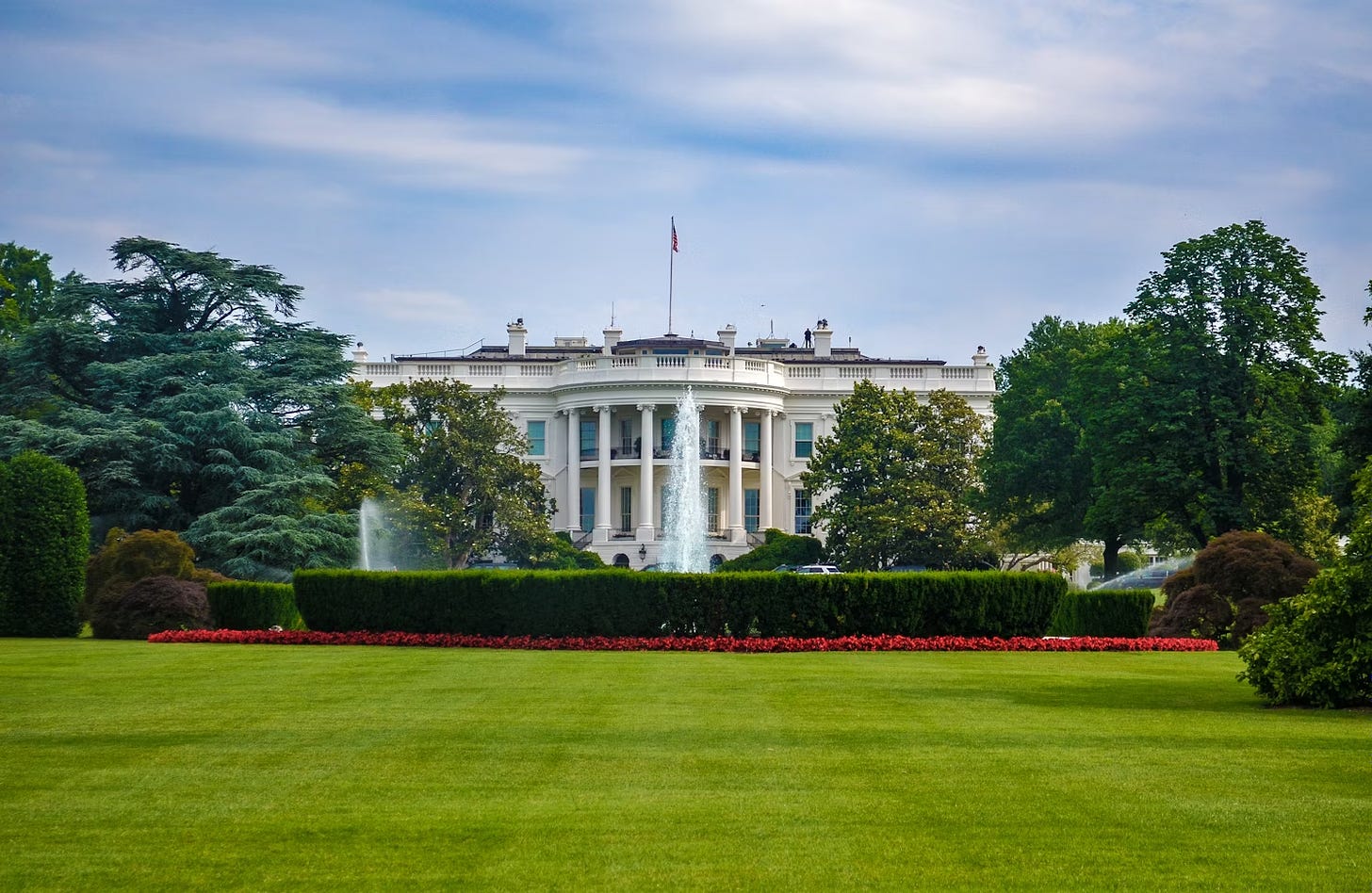EE#26 Reappraising the IRA - no not that one
Biden's programme is more than just subsidy, that matters for UK politics.
Everything is bigger in America. That is the conceit with which UK climate bods met the Inflation Reduction Act when it passed 18 months ago. America, because of the size and diversity of its domestic market can do subsidies in a way this small island nation cannot. It can take multi-billion dollar bets on every green tech going. The UK has to be picky but has a wider range of policy tools. I have written that form of words many times.
But 20 months post the IRA passing, I’m starting to disagree with myself for two reasons:
the scale of programs launching now, and their design, *is* replicable in the UK.
beneath the subsidy mountain, Biden has been more adept at regulation than we like to assume.
This might change the political strategy for those championing climate action in the UK
The launch of IRA along with its ‘sister acts’ the IIJA and CHIPs, was focused on tax credits. These can be summed up as, if you do this positive thing, the US government will pay you. That could be building more clean energy, investing in US manufacturing, or households getting an EV.
Yet, the guidebook on the contents of the Inflation Reduction Act is 182 pages long. There is much more in there, and some of it has taken time to develop.
Last week the White House announced its Greenhouse Gas Reduction Fund - a $27bn investment that will underpin financing options to decarbonise. While the money comes through the Environmental Protection Agency, it will be distributed to green banks (eight non-profit groups or individual orgs) whose goal is to multiply those funds.
That funding is further split into three tranches. The National Clean Investment fund - for financing clean tech deployment; the Clean Communities Investment Accelerator, for finance hubs and technical assistance in low-income communities, and; Solar for All, helping low-income areas access distributed solar.
What’s interesting for the UK is not the sums, but the design. These funds are about creating financial models that will last beyond the (in theory) finite subsides.
The hope is also to reduce the cost of private capital to lend directly, for example through blended finance. This is something the UK isn’t great at. As I wrote recently for IPPR, central government relies a lot on grants in its decarbonisation policy. But often loan guarantees will provide the same function, at lower cost. Blended finance models also offer the chance to show the private sector that returns can be made.,
Green banks are building institutions that address non-financial barriers. Lots of this new money is to build finance in-home or community decarbonisation. This area is plagued by a low understanding, consumer nerves and the potential for cowboys. The GGRF helps groups build what are effectively One Stop Shops. These are going great guns in Europe, with Ireland, France and many other nations rolling them out. As well as providing information on financing (and the financing itself), OSSs link to accredited installers, consumer rights programs and redress if something goes wrong.
The UK will differ. The scale of our non-profit sector means delivery of these funds would need to sit with the state, either local or national, and the sums would be less. But there’s no reason between the UKIB and the British Business Bank that the design of this fund can’t be copied.
The examples don’t stop in the GGRF, the expanded Loans Programme Office follows a similar model for example. While the £6.2bn in the IIJA for industrial decarb in practice looks a lot like a carbon CfD, something also happening in Germany at the moment.
The other reason I’m sceptical of past me is that Biden has carried on passing regulation. While it is a weaker version than originally intended, the Securities and Exchange Commission has passed plans for companies to disclose Scope 1 and Scope 2 emissions. The White House has also brought in tailpipe pollution limits - their version of the UK Zero Emissions Vehicle Mandate - to increase the yearly percentage of EV sales by automakers. There’s also been progress on regulating fossil fuel power plants. Yes, Biden has struggled with these and watered them down, but they got passed!
There is still a long way to go. While electric vehicles have surpassed all projections from the IRA, its clean energy generation is off track. It won’t be news to those fighting planning regs in the UK, that the bulk of this is due to permitting, something Biden failed to get agreement on in each of his landmark bills.
Reappraising the IRA and what the UK government might do is important for policy, but crucially it’s important for politics. While the tax credits have led to huge macro-scale impacts - from manufacturing investment or job creation; it's funds like the GGRF that will have microscale impacts, individuals seeing their bills fall or their quality of life and health improve.
That matters for the next UK government. Voters aren’t currently rewarding Biden for his macroeconomic success. Partly because memories of rampant inflation remain strong, but mostly because it’s hard to prime voters to expect, and ultimately reward, politicians for change. The GGRF allows for more retail politics, central to November. They are in my mind the difference between New Labour’s 1997 pledge card and 2024’s Missions. Both are important, both are connected. But it's only the former that you can show to voters five laters and say, we told you we’d do this, you saw it happen, and you know it was us that did it.






